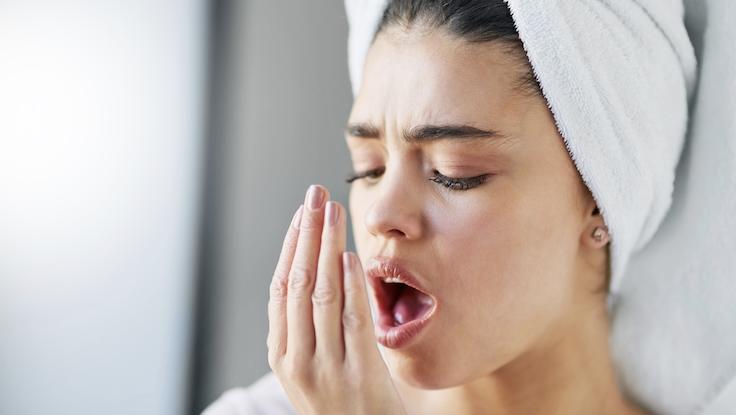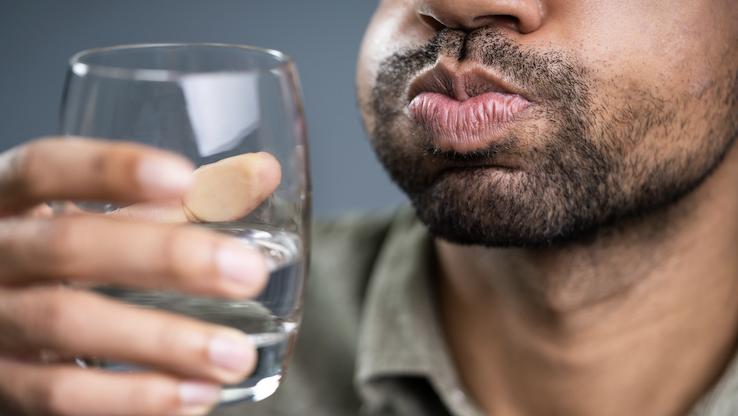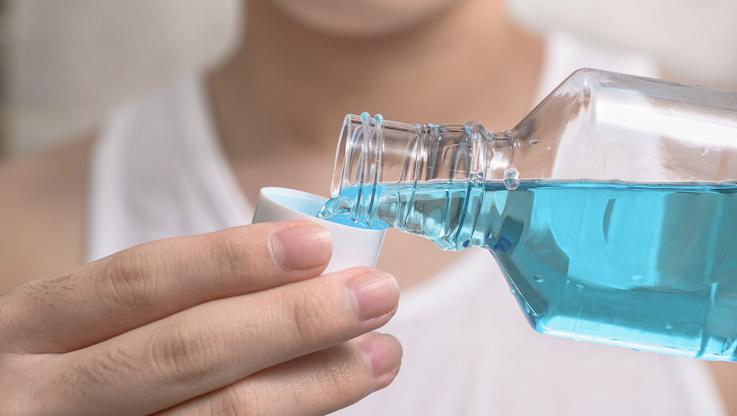Diet Soda and Bad Breath

Bad breath is a common problem — everyone has it from time to time. When you're worried about how your breath smells, it can make you feel self-conscious and get in the way of socializing. And bad breath can be a sign that your teeth, gums and mouth aren't as clean and healthy as they could be.
The good news is that you can take steps to freshen your breath and protect your oral health. Learn what causes bad breath and how to get rid of it.

Lots of things can cause bad breath. Sometimes breath odors are related to behaviors, including:
- Not brushing your teeth or flossing often enough
- Eating certain foods, like garlic or onions
- Using tobacco products
Certain medicines can also cause bad breath — and so can some health conditions, including:
- Infections in your mouth
- Gum disease
- Dry mouth
- Postnasal drip (mucus draining from your nose into your mouth and throat)
If you're concerned that your bad breath may be caused by a medicine or health problem, talk with your doctor or dentist.
How to Get Rid of Bad Breath

If you notice that you have bad breath after eating certain foods — like garlic or raw onions — you can try avoiding these foods and see if that helps. And if you smoke, make a plan to quit.
But foods and cigarettes aren't the only triggers — if you don't take care of your teeth and gums, bacteria can multiply in your mouth and cause unpleasant smells. So the best way to keep your breath fresh is to take good care of your oral health. Follow these tips.
1. Brush Regularly

Brushing teeth gets rid of food debris that can stick to teeth and cause smelly breath. It also helps prevent plaque buildup and cavities. The American Dental Association recommends that everyone brush their teeth at least twice a day, for at least two minutes at a time. Use a manual or electric toothbrush with soft bristles and a fluoride toothpaste. Replace your toothbrush every three to four months, or whenever the bristles start fraying.
2. Floss Regularly

Dental floss removes food from between your teeth, where your toothbrush bristles can't reach. If you're only brushing and not flossing, you may be missing food particles that can lead to bacteria buildup and bad breath. The American Dental Association recommends flossing at least once per day — so try flossing before going to bed or first thing in the morning.
3. Clean Your Whole Mouth — Not Just Your Teeth

Most bacteria that causes bad breath tends to live on your tongue. Try using the back of your toothbrush or a special tongue scraper to keep your tongue fresh and clean. Pay special attention to the back of your tongue and any visible film along the top and sides. Also remember to brush along your gums, your cheeks and the roof of your mouth to keep your whole mouth clean and smelling pleasant.
4. Swish with Water

Swishing and gargling with water when you wake up can help to get rid of morning breath. It's common for overnight postnasal drip to leave mucus lining the back of your throat, and swishing with water can help to clean out that potentially smelly stuff.
5. Use Mouthwash for Bad Breath

Mouthwash helps rinse away food particles and bacteria — so it's a good way to keep your breath fresh between brushing sessions. You can buy mouthwash at the store, or make your own at home. Just mix one teaspoon of baking soda into one cup of water. The baking soda creates a basic pH level that can neutralize bacterial growth. Swish for 30 seconds, then spit.
6. Chew Sugarless Gum

Saliva helps keep your mouth clean and stop bacteria from building up — and dry mouth is a common cause of bad breath. If your mouth is dry, chewing gum can help stimulate the glands in your mouth that make saliva. Try chewing sugarless gum and see if it helps keep your breath fresher. But avoid gum with added sugars — sugar can cause bacteria to grow and make bad breath worse.
Resource Links:
- "Bad Breath" via Mayo Clinic
- "Bad Breath: What Causes It and What To Do" via Harvard Health
- "Bad Breath: 6 Causes and Solutions" via Mouth Healthy (American Dental Association)
- "Halitosis (Bad Breath)" via Johns Hopkins Medicine
MORE FROM SYMPTOMFIND.COM
Source: https://www.symptomfind.com/health/how-to-get-rid-of-bad-breath?utm_content=params%3Ao%3D740013%26ad%3DdirN%26qo%3DserpIndex
0 Response to "Diet Soda and Bad Breath"
Post a Comment